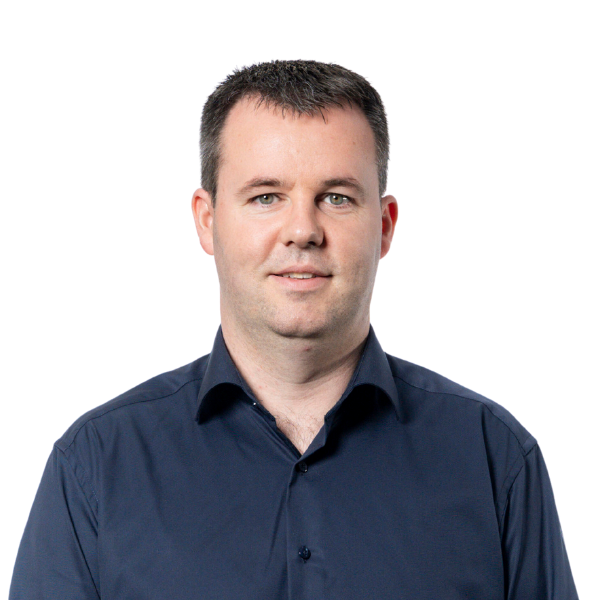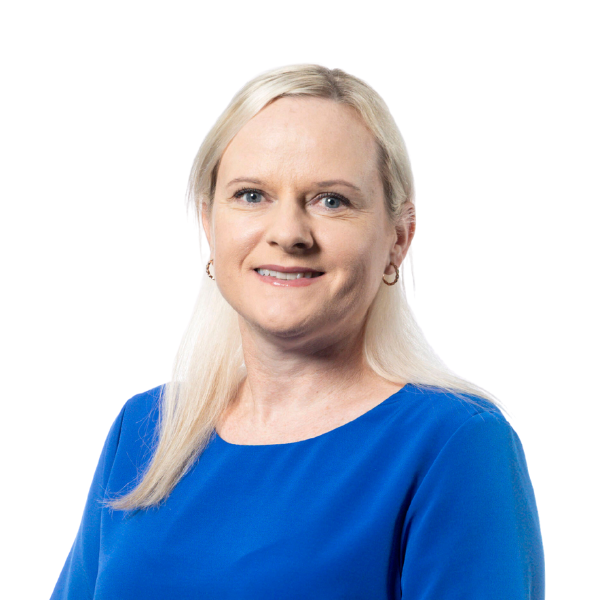

“It can be in data visualisation or machine learning but always we need to be on the cutting edge of what’s happening. For a lot of people with demanding jobs in the industry, it’s asking a lot for them to stay fully on top of not just what’s possible in their industry now, but also the technological developments and capabilities that are coming down the line.”
For 27 year old data scientist Ciaran Knowles just working with data isn’t enough. Once he started out in the industry he knew that to be truly satisfied with a career in technology, he’d need to be able to make a real world difference not just to one company but to many.
“That’s the essential reason I ended up at DMI. I realised that here I could do things on a bigger scale, make a tangible impact on the world and do it not just with one company but with everyone from small SMEs to multinationals. Once I came here and saw what was here, and who was here, I realised this allows me to fast forward my career in one go,” he said.
Knowles is a data scientist who focuses on statistical process control and how to monitor manufacturing processes. The core of his expertise is in detecting variations that can occur during any manufacturing process and ensuring product quality control. This is done using data visualisation, both at a granular and high level.
In short, he’s the guy who is able to take data from a complex manufacturing process and turn it into information to help everyone from machine operators to the board of directors have greater insight into how their systems could be improved.
“I have a good understanding of how things work ‘in the bunkers’, in other words, on the frontline of production where people are focused on hourly and daily targets, sometimes split down into 15 minute intervals. But I also know what the technicians and engineers are looking for, and what the directors and company stakeholders are interested in. That kind of overview has real value,” he said.
“Coming from the Med-tech sector, I also am used to the kind of compliance regulations and strict restrictions that operate there and that gives you the ability to work at pretty much any level.”
On a day to day level, much of Knowles’ activity at DMI is based around data collection and data cleaning, essentially driving insights from raw data in the form of statistical analysis or exploratory data analysis. The goal is to uncover previously unidentified trends. Because everyone at DMI has a background in industry, they have the skills to identify where previously overlooked insights might lie.
“It can be in data visualisation or machine learning but always we need to be on the cutting edge of what’s happening. For a lot of people with demanding jobs in the industry, it’s asking a lot for them to stay fully on top of not just what’s possible in their industry now, but also the technological developments and capabilities that are coming down the line.”
“But it’s our job to stay fully on top of developments and to make sure we have access to the best toolsets so that when a customer has a problem and comes to us, we’re drawing from the largest possible bank of solutions. We’re entirely agnostic on software, systems and technology, so it doesn’t really matter where the best solution comes from, just that we can find and apply it.”
Knowles estimates that about 20 per cent of his time is spent reading white papers, industry trade journals, best practice guides, and just generally staying on top of next generation solutions to manufacturing problems.
“That’s really useful but we also get to use the experience we gain working with actual companies with real world problems. So we’re always building on that knowledge base.”
This outward and forward-facing aspect of DMI’s activities means that professionals like Knowles are often well placed to make predictions about where manufacturing is going and what will be making waves in the near to medium term future.
“The first thing I expect to see more of in the coming months and years is the spread of fully integrated digital ecosystems, as the basis for proper digital transformation. That means manufacturing companies where every machine and sensor communicates seamlessly, allowing for real time adjustments in predictive maintenance,” he said.
“This will dovetail with the increase in usefulness and application of AI and machine learning.”
Knowles also expects to see sustainability and green manufacturing continue to increase in prominence.
“The digital tools being developed and implemented will enable operators to reduce and even erase their carbon footprint. That will feed into wider sustainability goals that many companies already have and which are only going to become more important,” he said.
Knowles believes strongly in the basics of businesses continuing to influence development trends. Companies are looking for technologies that allow them to improve production levels, reduce waste and inefficiency and identify opportunities that perhaps weren’t viable to pursue in the past.
He also expects to see a push towards wider adoption of augmented reality (AR) in the area of visualisations. Already, DMI makes use of Google Lens and Microsoft’s HoloLens 2.
“We’ve already seen with both vendors and clients that AR and VR can be used to train operators on complex production processes without needing them to be physically present at the location. This is going to have a radical impact on the concept of training in general.”
“These trends and a lot more are surely going to reshape the way the manufacturing sector works in Ireland and around the world. It’s an exciting time to be working in this sector because I have a strong intuition that we’re at the beginning of something extraordinary, and it will be a privilege to see how it all plays out.”
News
More articles

Tommy Brennan - Vision Cognitive Technology

Terry Scanlon - Technology Adoption

Sheila Whelan - Using Data to Optimize Manufacturing

Sara Cuddy - Human-Centric Manufacturing

Mike Kiely - Data Science in Manufacturing

Keith Reilly - Digital Twins

Katharine Cooney - Business Intelligence

Declan Egan - Automation Design

Claude Costelloe - Manufacturing Operations



